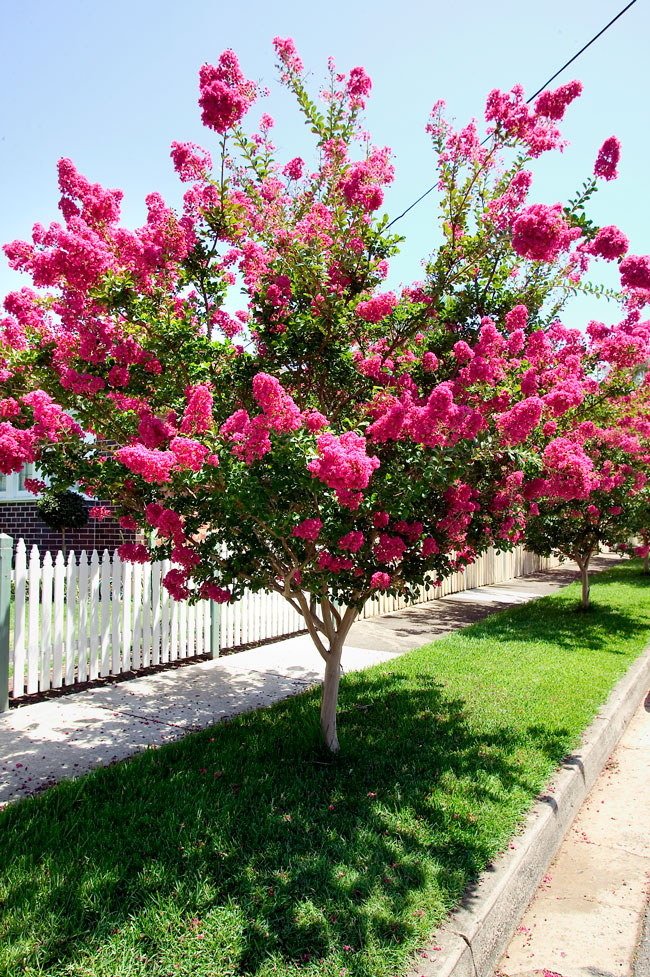
Crepe Myrtle Burke's Backyard
Native Range: The crape myrtle is native to China, Korea, northern Australia, and parts of Oceania, and is cultivated in warmer climates around the world. It has been embraced by Americans and has become a dominant landscape plant in the South. Crape Myrtles need full sun, and need soil to be well drained and slightly acidic.
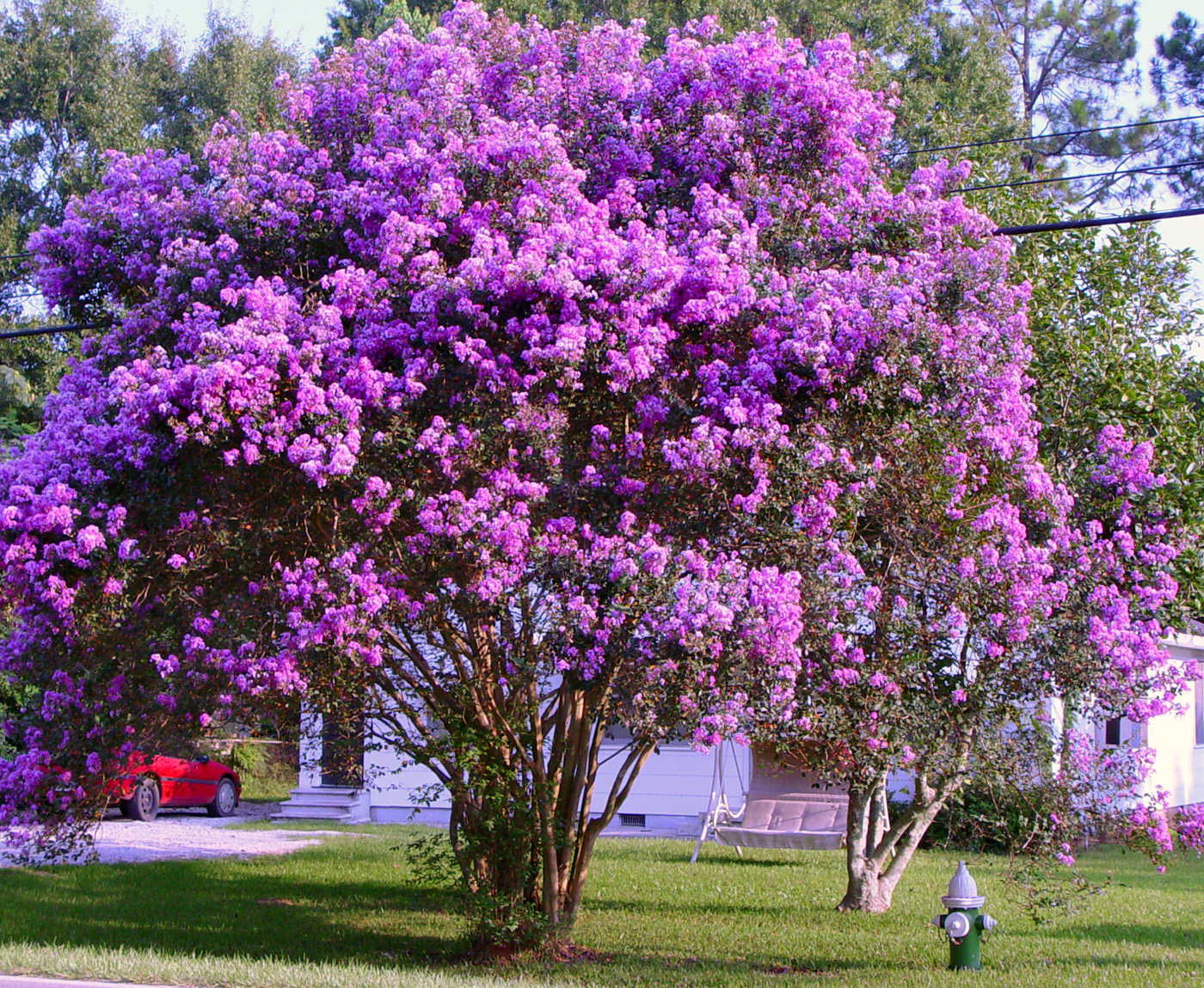
Crepe+Myrtle
All crepe myrtles grow well in Australia. They especially like a hot and dry climate. They transplant well from a pot or buy them as a bare-rooted plant in winter. Get them established with plenty of water, to ensure the root system develops well. Once established, crepe myrtles are remarkably drought-tolerant.
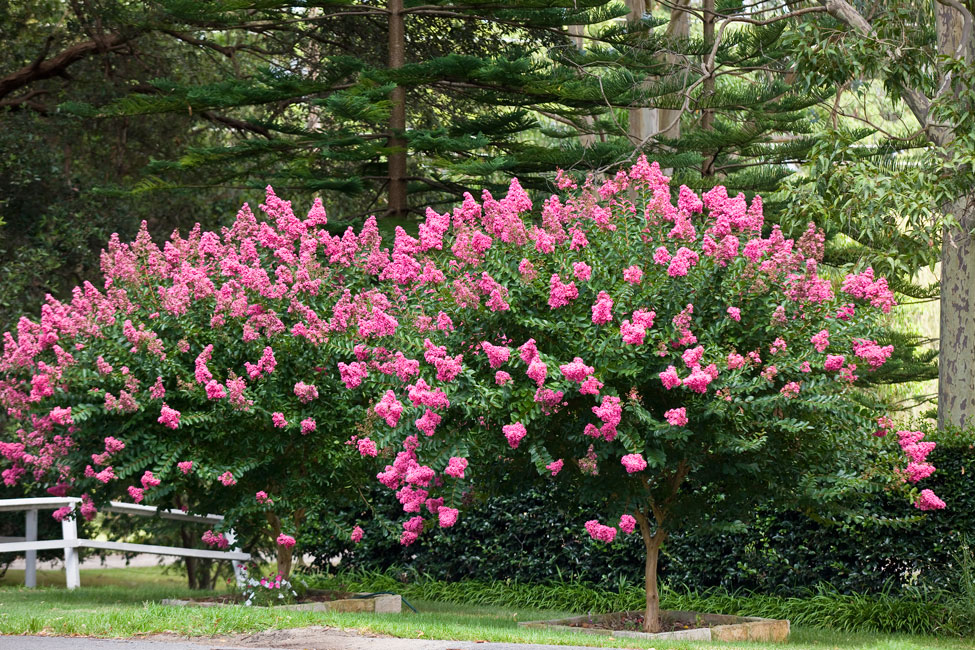
Crepe Myrtle Burke's Backyard
Crepe myrtles are native to North America, where they were once used as hedges and windbreaks. Today, the crepe myrtle is popular as a landscape plant because it's drought-tolerant, frost tolerant, fast-growing, and attractive. Appearance and characteristics of Crepe Myrtle/ Lagerstroemia Indica
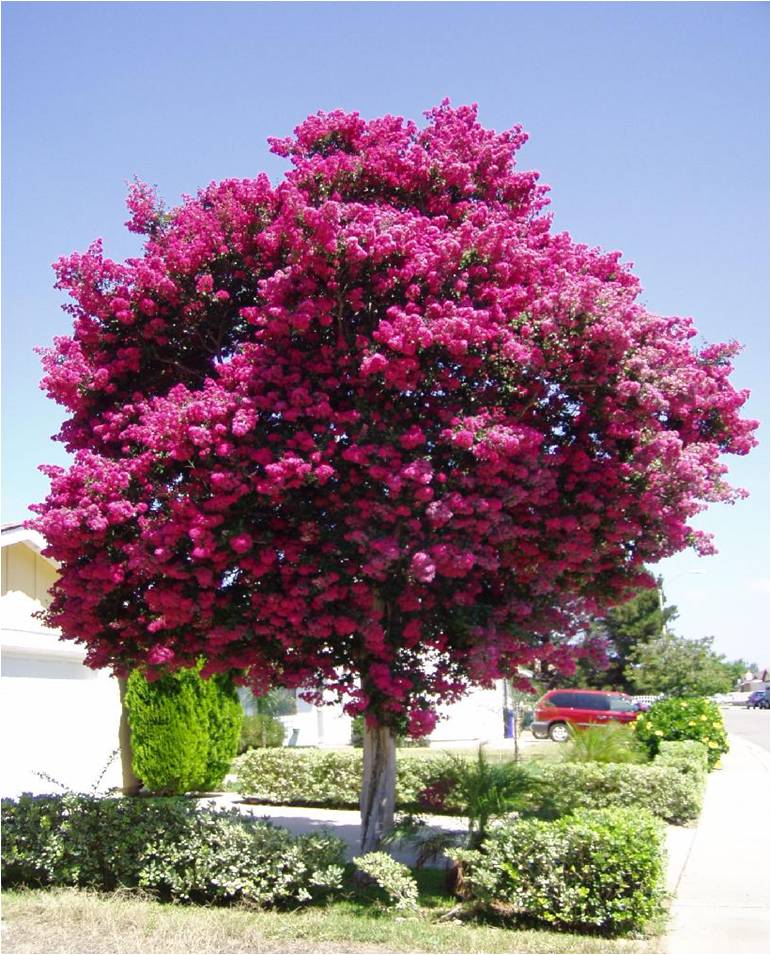
Deciduous Trees Tree Nursery Western Australia Mature Trees Advanced Trees Perth
They are native to eastern Asia and are hardy in most parts of Australia. Don looked at an exciting new range of crepe myrtle hybrids which reach different heights and spreads, and so reduce the need for pruning. They are also resistant to powdery mildew, a fungal disease that is difficult to control with fungicides. Plant details

Crepe myrtles a blossoming beauty Queensland Times
The Lagerstroemia Indica is a fantastic towering tree of the Lythraceae family, grown across Australia for its bold blooms and attractive bark. These trees can be grown and single-trunk or multi-trunk trees, depending on preference and offer fantastic fall foliage and bright blooms in summer, ranging from white to pink to a deep red and purple.

Crepe myrtles how to grow and care for Crepe myrtle, Myrtle tree, Australian native garden
Last Updated: September 25, 2023 To add to its allure, crepe myrtle is deciduous, which means the lovely green foliage changes in colour to yellow, red, or orange before dropping off the tree. Even a bare tree in winter is quite attractive with its smooth mottled trunk and interesting shape.

Zuni Crepe Myrtle ‘Purple’ for Sale Australian Plants Online
Native to southern and eastern Asia, they grow well in most parts of Australia, producing fabulous crepe-like flower heads in shades of pink, red, mauve, purple and white, through January and February. WATCH: What to plant under a shady tree with Charlie Albone

crepe myrtle in full bloom Buiten
A plant is considered native if naturally occurring in a particular region or ecosystem without human introduction. There are many benefits in growing native plants. First, these plants are better adapted to soils, moisture, and weather than exotic plants that evolved in other parts of the world.
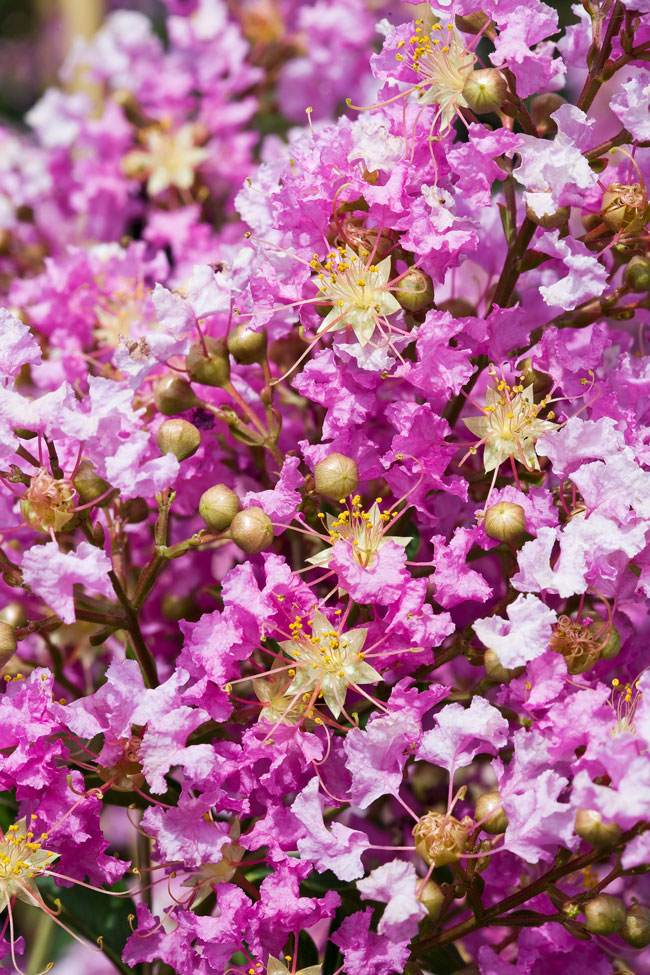
Crepe Myrtle Burke's Backyard
Lagerstroemia (/ ˌ l eɪ ɡ ər ˈ s t r iː m i ə /), commonly known as crape myrtle (also spelled crepe myrtle or crêpe myrtle), is a genus of around 50 species of deciduous and evergreen trees and shrubs native to the Indian subcontinent, southeast Asia, northern Australia, and other parts of Oceania, cultivated in warmer climates around the world.It is a member of the family Lythraceae.
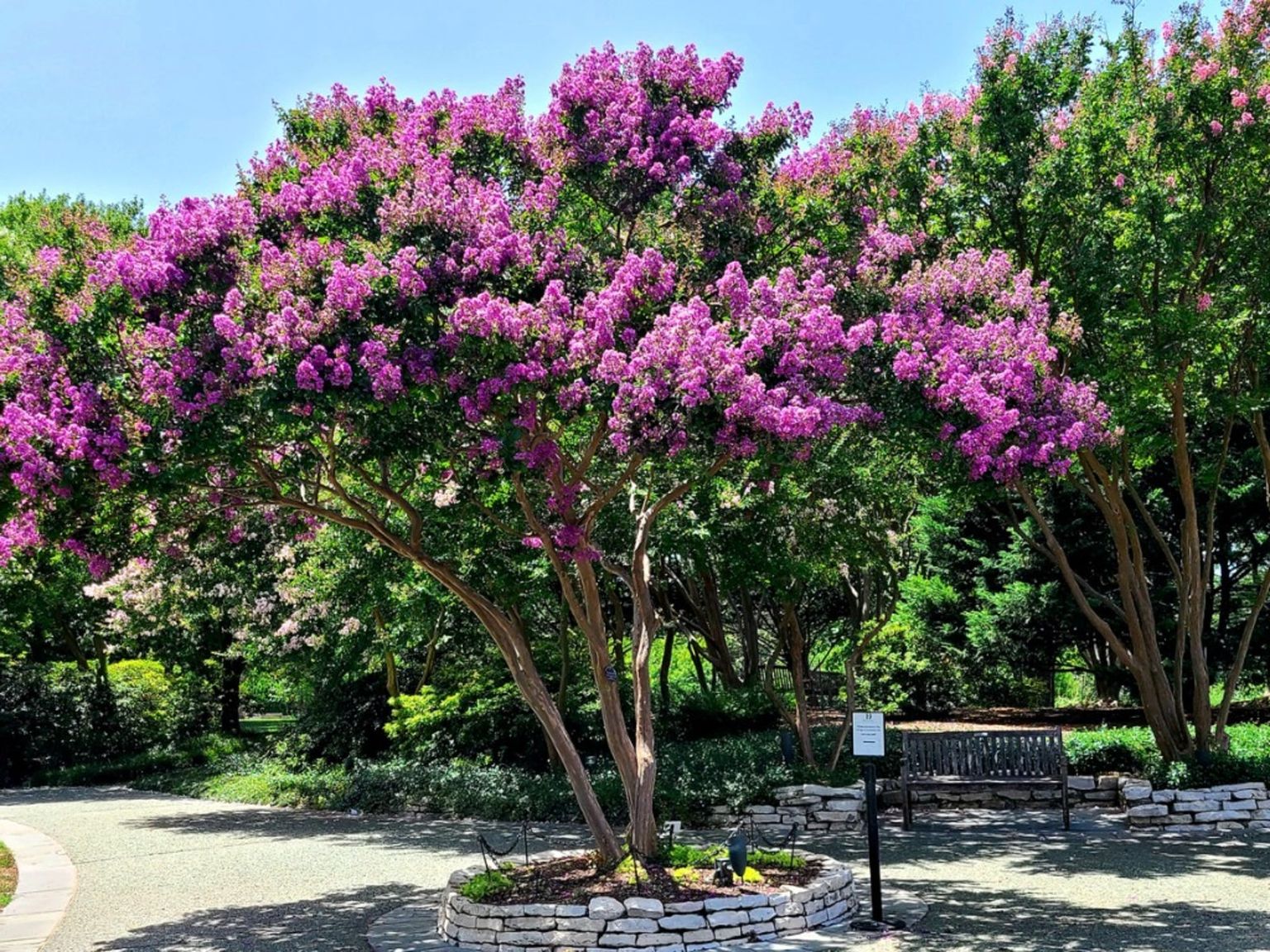
Crape Myrtle Tree Information How To Grow Crape Myrtle
Lagerstroemia indica cultivars are available in white, red, pink and deep mauve. It is named for its crepe-paper-like individual flowers, which form triangular spires. They are relatively slow.

White Crepe Myrtle Tree Varieties
Written by: Annette Hird Last Updated: September 25, 2023 There's something quite magical about crepe myrtle trees. I love its interesting vase shape and also the magnificent burst of colour when the tree blooms in late summer. These stunning trees suit Australian conditions perfectly.

Twilight Crepe Myrtle Huge Purple Blooms
Crepe Myrtle Trees or 'Lagerstoemia Indica' are a favourite summer flowering ornamental tree. They are celebrated for their stunning flower clusters, which resemble crepe paper, hence the name "Crepe Myrtle." Their crepe-like flowers range in vibrant hues from white and pink to lavender and red, with long-lasting blooms.

Crepe Myrtle (Lagerstroemia Indica). Beautiful flowering tree native to Eastern Asia and hardy
Native to Eastern Asia, crepe myrtle trees were introduced to Australia in the early 1800s and have been growing in popularity ever since. They are excellent feature trees and good choices for street trees. The most popular varieties in Australia are the Natchez and Tuscarora, which have beautiful white and pink flowers, respectively.

Crepe Myrtle Tuscarora Trees Perth Screening Trees WA
There are no species of plants in the crape myrtle genus native to North America, but introduced Lagerstroemia have been planted in incredibly large numbers in the southeastern United States. People love their showy blossoms, attractive bark, cold- and drought-hardiness, and their ability to grow in a wide range of soil types.
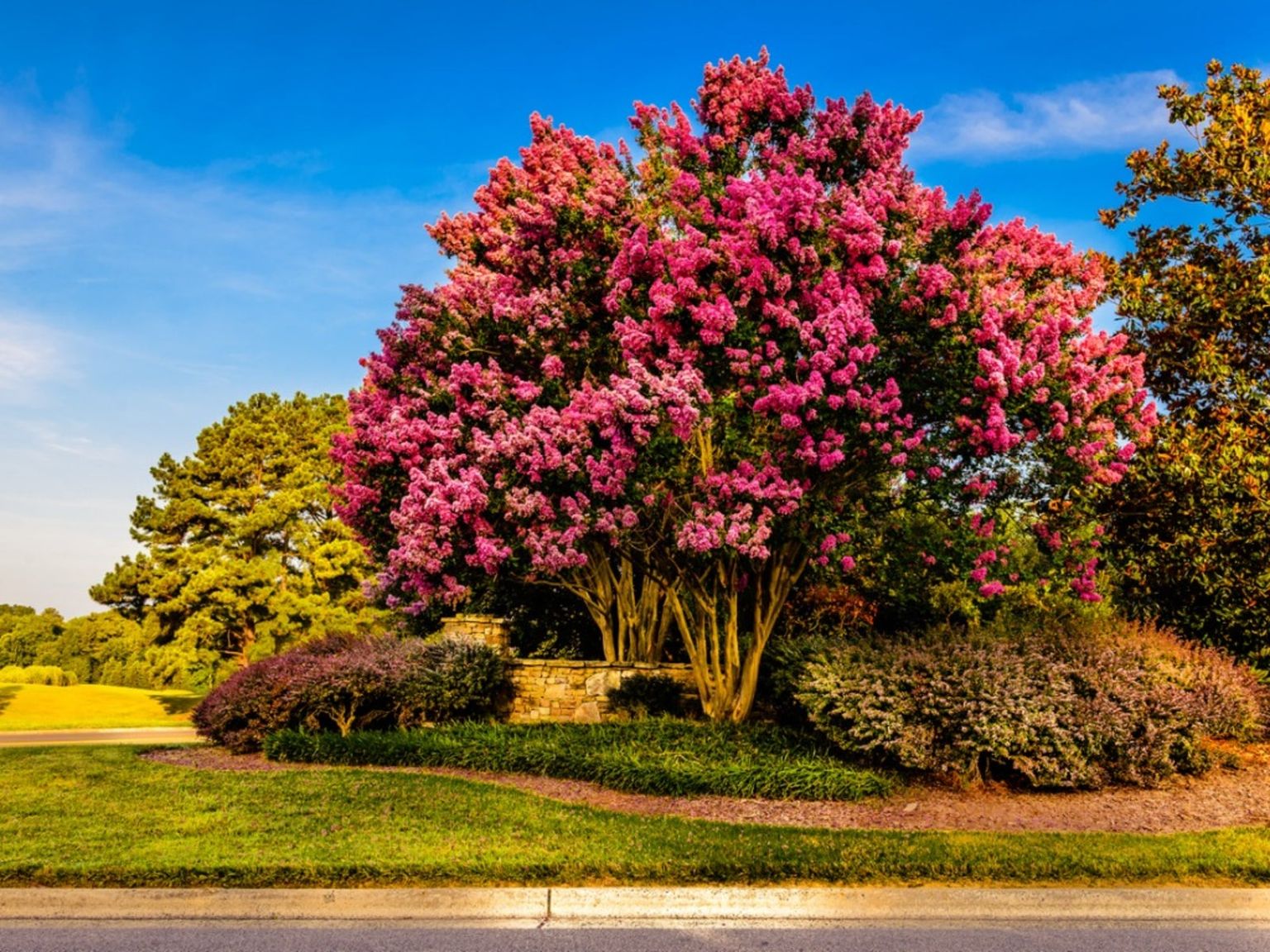
Crepe Myrtle Information Learn About The Lifespan Of Crepe Myrtles
Lagerstroemia archeriana "Native Crepe Myrtle" TREE FROM 5 TO 7 METRES TALL Small, fast growing tree with open canopy, often forming several trunks. Leaves turn shades of orange & red before falling in late winter. Showy clusters of pink or mauve flowers appear in summer, followed by seed pods that attract cockatoos.
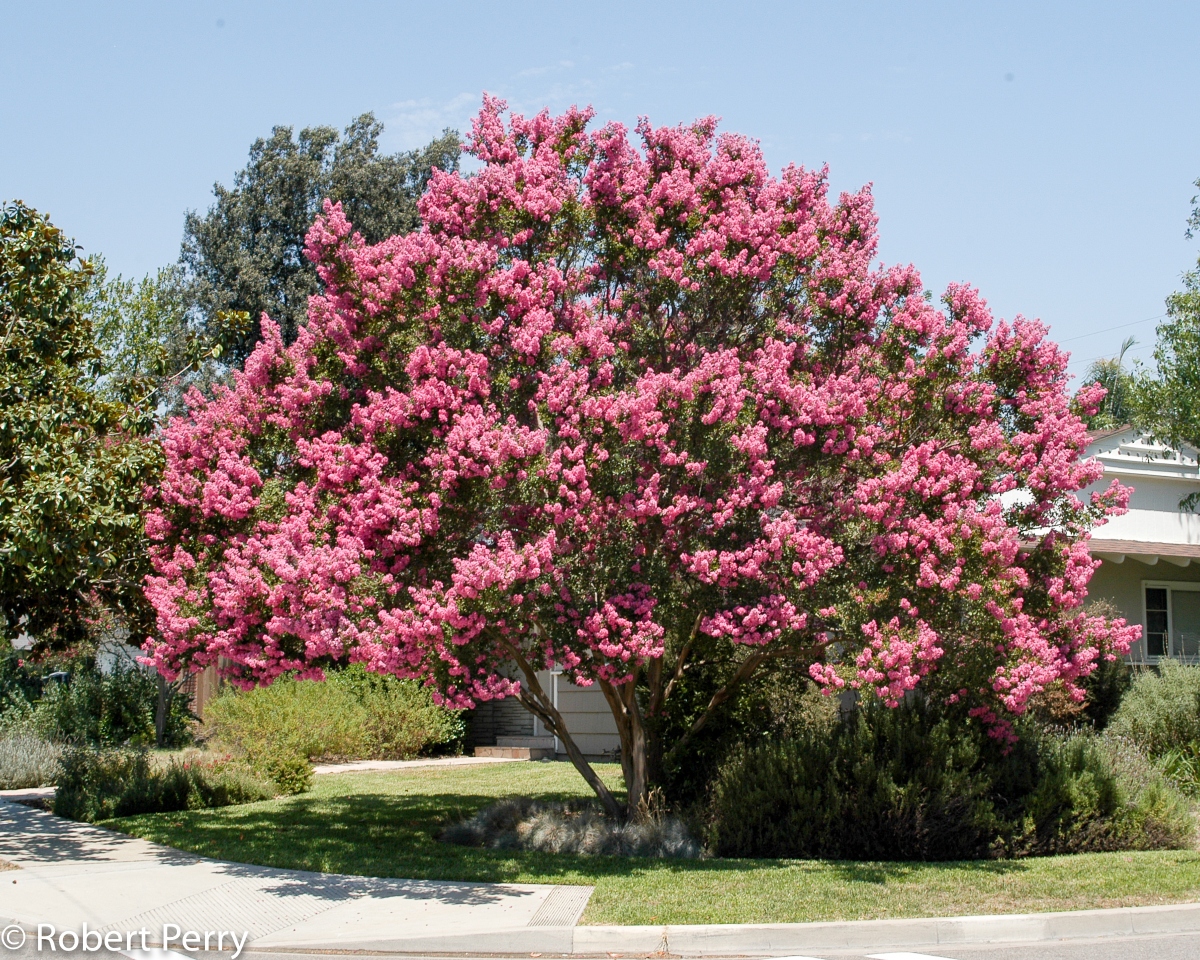
The Very Best Australian Trees
There is an Australian native Crepe Myrtle (Lagerstroemia archeriana), which grows to around 7m tall and has pinkish mauve flowers. Another interesting variety of Crepe Myrtle is the Diamonds in the Dark series. The foliage is dark burgundy and come in a range of colour flowers such as white, red, pink and purple.